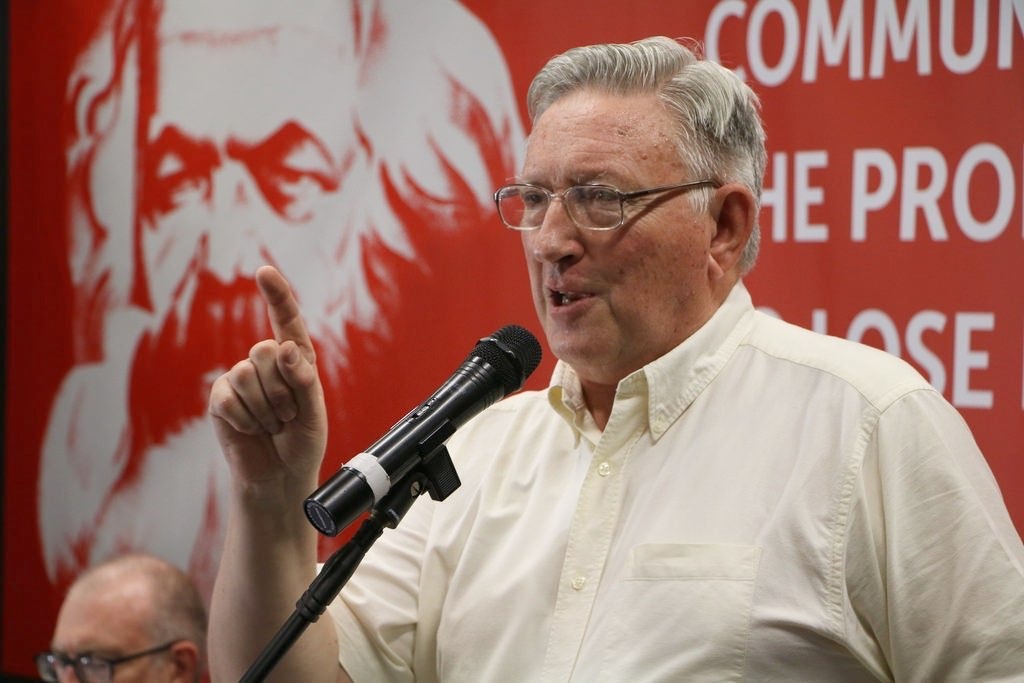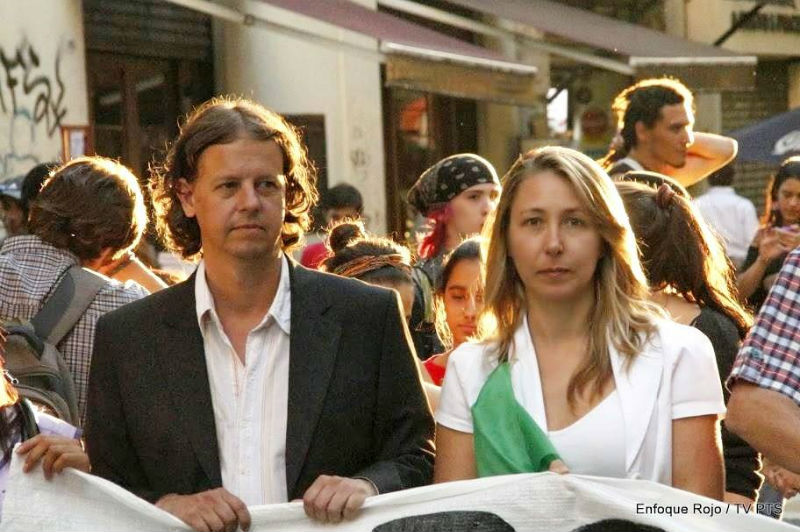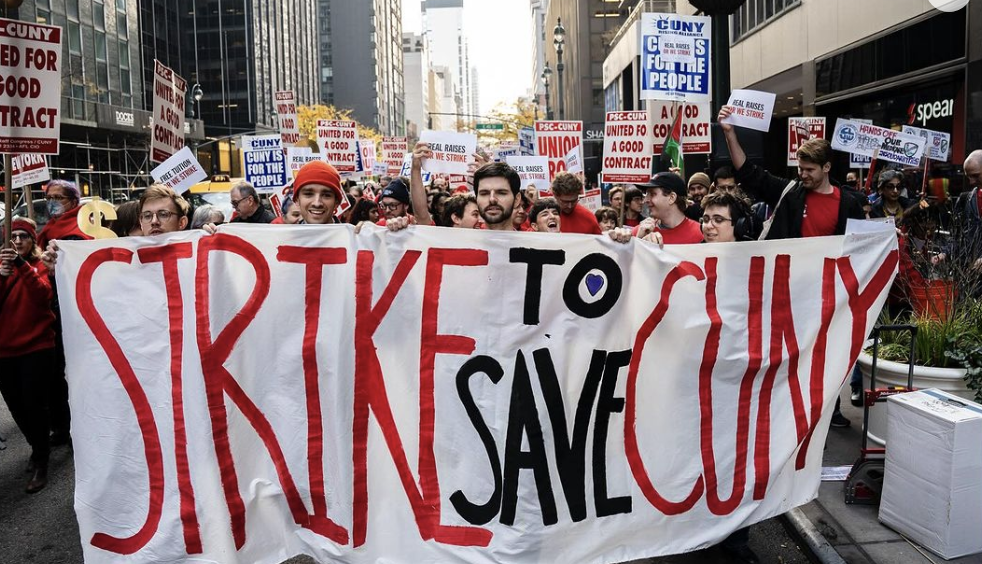The AFL-CIO Can Be Reformed, Locally and From the Bottom-Up!

AFL-CIO-seal – Fair Use
Changing the leadership, structure, or functioning of any U.S. labor organization is no easy task. Activists and experts have long argued about whether dysfunctional unions are best reformed from the top-down, bottom up, or some mix of the two approaches.
For the past 65 years, the main locus of union democracy and reform struggles in the U.S. has been local unions, which hold leadership elections every three years and are closest to the membership. Thousands of rank-and-file workers have campaigned for more militant unionism by running for and winning local office.
Some have had the backing of national networks of like-minded dissidents, including Teamsters for a Democratic Union (TDU) and Unite All Workers for Democracy (UAWD), a TDU-inspired reform caucus within the United Auto Workers. And, in recent years, TDU and UAWD supporters even ousted national headquarters officials in Washington and Detroit, with the result being more effective contract campaigning and/or strike activity at major employers in the trucking and auto industries.
Very few modern-day reformers have mounted similar challenges to the status quo in city or state labor federations chartered by the national AFL-CIO. Representing workers from different AFL-CIO affiliates, these central labor councils (CLCs) may be just as bureaucratic or dysfunctional as the individual unions that belong to them. But, structurally, most are too far removed from workplace struggles to generate many electoral challenges to incumbent AFL-CIO officials, at the local, regional, or state level.
As a result, there have been few contested elections, like in the Teamsters and UAW, with opposing slates offering alternative programs for union revival. In AFL-CIO leadership votes, officers and executive board members are chosen by convention or council delegates, the same method used by most national unions. The rank-and-file has little or no say about who runs AFL-CIO bodies.
A Rare Labor Insurgency
One notable exception is the Vermont Labor Council, which represents 20,000 public and private sector workers. In the Green Mountain State, due its small scale, most state AFL-CIO convention delegates are working members or retirees, not full-time officials. Since 2019, they have cast ballots in several hotly contested elections which resulted in a mandate for change.
Most recently, last September, they elected an all-female leadership team to three top officer positions and made Katie Maurice the youngest state AFL-CIO president in the country and the only one who belongs to the Democratic Socialists of America (DSA).
Maurice took over last fall from David Van Deusen, a fellow member of the American Federation of State, County, and Municipal Employees (AFSCME). In a new book from PM Press called Insurgent Labor, Van Deusen describes how a group of local union officers and staff members created a reform faction called “Vermont AFL-CIO United!” five years ago. These rank-and-file activists were frustrated by their labor council’s lack of militancy and creativity, plus its inability to aid new organizing, contract campaigns, or strikes.
Fourteen United candidates got elected in 2019—taking all the top officer jobs, forming a majority on the executive board, and winning a national AF-CIO-ordered re-run of the original election. Their goal was to revitalize a moribund organization through membership education, mobilization, and direct action. They favored greater internal democracy and transparency, independent political action and more labor support for social and environmental justice.
But, inside and outside Vermont, that progressive agenda proved to be surprisingly controversial. Rather than welcoming and applauding the election results, the national AFL-CIO —then headed by the late Richard Trumka—threatened to remove the reformers from office and put their council under the control of appointed staff members from Washington.
As Van Deusen recounts in his book, this trusteeship was averted and union activists in Vermont have continued to make their state labor council a model for the rest of the nation. Last Fall, a second United! slate again won a majority of the seats on the labor council executive board. Van Deusen’s successor, 31-year old Katie Maurice hailed the results as an “affirmation of our desire to continue to focus on rank-and-file organizing within the state of Vermont over political lobbying.”
New organizing, plus a major affiliation with the long independent Vermont State Employees Association, has nearly doubled the state fed’s dues-paying membership since 2019 (although the VSEA did not support the United! candidates last fall and instead backed the building trades slate that lost).
A Record of Accomplishment
What else have Vermonters accomplished in the last four years– in addition to fending off a hostile take-over from Inside-the-Beltway? As Van Deusen reports in Insurgent Labor, state labor council meetings were opened up to all union members, not just elected delegates, and began to attract their largest turnouts ever.
The reformers worked with building trades unions to pass so-called “responsible contractor ordinances” that require prevailing wages on major public construction projects in multiple Vermont cities and towns.
Vermont became the first state labor federation in the region involved in the “Renew New England Alliance.” This six-state “Green New Deal” coalition is campaigning for the creation of thousands of good union jobs—for workers building affordable housing, installing rooftop solar panels, cleaning up pollution, and slashing the carbon emissions responsible for climate change.
The new leadership’s savvy use of social media, radio shows, and local TV appearances enabled organized labor to reach a bigger non-labor audience—and build stronger relationships with community allies. Within the broader Vermont labor movement, Van Deusen aided rank-and-filers in non-AFL-CIO unions during their fight against a public employee pension cut favored by Republican governor Phil Scott and leaders of the Democrat-controlled state legislature. Labor council organizers used Vermont’s annual May Day rally in Montpelier to build support for the state’s immigrant workers, who are mainly Latinos employed on dairy farms.
The new and improved state AFL-CIO has given Vermont Democrats a much-needed dope slap by endorsing more third-party candidates for state and local office. As Maurice explains, “since 2019, we have strengthened our ties with the Vermont Progressive Party, which has not only focused on workers’ rights but also championed broader social justice causes, in a political landscape often dominated by powerful corporate interests. “
According to Maurice, “The VPP’s role as a party for the working class is not just about rhetoric; it’s about tangible actions. It’s about supporting legislation like the VT PRO Act that would protect the right to organize, about standing up against union-busting tactics, and ensuring that union members have a seat at the policy-making table in Montpelier.”
Misconduct or Model Behavior?
Before his death in August, 2021, Rich Trumka had an opportunity to support an exemplary CLC initiative, calling attention to the still looming threat of fascism in the U.S. In anticipation of then-President Trump’s likely rejection of the 2020 election results, Vermont labor council delegates issued a bold call for “a general strike of all working people in our state” if there was a right-wing coup aimed at keeping Trump in office.
AFL-CIO headquarters tried to block any discussion of such a contingency plan in response to a possible constitutional crisis (of the sort which did occur, shortly thereafter, on January 6, 2021). After Vermont labor leaders debated the subject anyway, Trumka ordered an official probe of their alleged non-compliance with national AFL-CIO rules applying to local affiliates.
In response, then state fed president Van Deusen urged AFL-CIO headquarters to investigate “how the example we are setting in the Green Mountain State could serve as a model for what a more engaged, more member-driven, more democratic, more anti-racist, more pro-immigrant and more organizing centered labor movement…could actually look like in other parts of the country.”
As readers of Insurgent Labor will discover, this tug-of-war had a happy ending, temporarily. Vermont labor reformers got a “final warning” from Trumka shortly before his death, but none were removed and replaced by appointees from Washington, D.C. Under Trumka’s successor, Liz Shuler, an organizing subsidy was resumed and relations with the national AFL-CIO took a welcome turn for the better–until late January.
In a Jan. 22 letter, President Schuler informed the council’s new officers and e-board that she was investigating last Fall’s “election process” based on a “protest appeal” filed by an affiliated union. She also directed them to “refrain from any discussion of the investigation…with the general public or entities and individuals not affiliated with the Labor Council.”
This attempted gag order is directed at United! supporters who have, in past internal disputes, tried to enlist allies on the AFL-CIO national executive board or keep labor media outlets informed about interference from Washington. Their impressive record of internal democracy and worker engagement should be a source of inspiration for trade unionists elsewhere, not further headquarters harassment and meddling.
Yet this new controversy does help amplify Insurgent Labor’s bottom line message: the ability to make real change rests in the hands of grassroots activists. To meet the challenges facing Vermont workers, Van Deusen and his reform caucus built on the best of organized labor, at the local and state level. They didn’t wait for top-down solutions or instructions from the national AFL-CIO, which has, consistently, been no friend of bottom up change in Vermont.
By Andrew Moss

Image Source: ufcw770 - WGA Strike 6.21.2023 064
Unions are once again playing a significant role in a presidential election. Joe Biden joins striking auto workers on a picket line in Michigan; Donald Trump meets with Teamsters leaders at Mar-a-Lago and Washington D.C. Vying for working-class votes, the candidates show how choices made by both union and non-union workers are seen as pivotal to election victory.
But 2024 differs from all previous elections, and the difference carries strong implications for the role of unions. Mr. Trump faces 91 felony indictments, including the federal charge of “conspiracy against the right to vote and to have one’s vote counted.” He had made clear months before the 2020 election that he wouldn’t accept as legitimate any electoral results handing victory to Mr. Biden.
By word and deed, Mr. Trump helped destabilize American democracy, but he’s never really functioned as a solo operator. As political scientist Erica Chenoweth observed about the U.S. more than a year ago, “the key prerequisites for a multiracial democracy to sustain itself are no longer in place. Many of the candidates from one party refuse to accept the outcome of the last election, won’t commit to accept a loss at the next election and are openly either endorsing, fomenting, or turning a blind eye to political violence.”
Strong forces press the nation toward what is called “electoral autocracy,” or “authoritarianism with the semblance of procedural democracy,” and a re-election of Donald Trump will clearly accelerate that movement. Unions and union voters must therefore play an ever more important role, not just as figures in the numbers game of political strategy, but as agents of democracy.
From the 1940’s to the early 1970’s, unions helped suppress the economic inequality that could have corroded American democracy during those decades. Over the years, effective unions have created bonds among working people that helped build trust and fend off the “atomization” and despair that would otherwise incline individuals to authoritarian leaders. And it’s no coincidence that states with higher levels of union membership (e.g. New York at 24.7 percent and Hawaii at 23.0 percent) have enacted either none or far fewer voter restriction laws than states with low levels of union membership (e.g. North Carolina at 3.9 percent; South Carolina at 3.2 percent).
Union members played significant roles in the 2020 election by canvassing hundreds of thousands of voters and by protecting poll watchers and voters from intimidation. They’ve lobbied Congress for voting rights legislation. And they did this despite the fact that, according to exit polls, a significant proportion of union members did vote for Donald Trump in 2016 (43 percent) and 2020 (40 percent).
Mr. Trump’s appeal in those elections may be attributed to the decades’ long neglect of labor by Democrats, while union membership declined in response to union-busting and a generally hostile legal environment. Nevertheless, Mr. Trump’s losing margin did increase by eight points when Joe Biden ran against him in 2020, and the shift may have derived not only from Mr. Biden’s professed support for unions, but also from Mr. Trump’s own record as president.
Mr. Trump appointed corporate-friendly individuals to the National Labor Relations Board and Department of Labor, rolled back health and safety workplace regulations, and supported a key Supreme Court ruling (Janus v. AFSCME) that helped weaken public employee unions, among other things. When asked during his first campaign if he supported unions, he said that as a businessman he had “great success” with both union and non-union labor, though he also noted, “if I had a choice [i.e. between working with or without a union], I think I’d take it without.”
By themselves, unions obviously can’t resist an authoritarian takeover of the U.S. As political scientists Erica Chenoweth and Zoe Marks argue in a recent report, a “large-scale, multiracial, cross-class, pro-democracy united front” is needed to do this work – a difficult, unprecedented kind of work. And with the election just a few months away, it’s work that must entail a critical weighing of many factors, not just reservations about Mr. Biden’s candidacy but also considerations of what’s most critically needed to protect democracy – not only in the near term but for years to come.
Unions have a critical place in these tasks. Perhaps the most succinct reason was articulated by the three co-presidents (Ada Briceno, Susan Minato, and Kurt Petersen) of UNITE Local 11, a 32,000 member union comprising hotel housekeepers, bartenders, cooks, and other working people – a union that sent many members to canvass in Arizona during the 2020 election and later to Georgia to help flip the Senate. Writing about this engagement, these three leaders stated simply, “As we see it, a strong union does more than negotiate work contracts. It helps workers become active citizens who stand up for their democratic rights.”
This article is syndicated by PeaceVoice.
Andrew Moss is an emeritus professor from the California State Polytechnic University, Pomona, where he taught a course, “War and Peace in Literature,” for 10 years.








